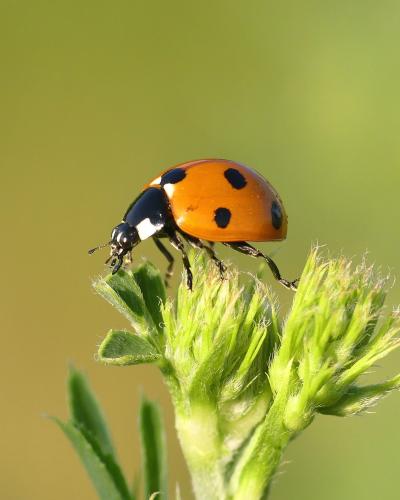A study published in Soil Science Society of America Journal shows that organic farming emits fewer greenhouse gases and has lower global warming potential than conventional farming. The study...
There is so much (in)credible science that explains why organic is a good choice for people and the planet, and more is published every week. The Organic Center summarizes the latest research into distilled bites so you can make informed choices. We only report on peer-reviewed studies and always will. Check out our research blog and sign up for our newsletter to get the latest science delivered right to your inbox.
Aug 16, 2021
A recent study from Geoderma shows that over time, organic yields can match and even exceed those of conventional when built up soil health and biodiversity lead to better crop production. This...
Aug 09, 2021
Brain development and cognition is influenced by environmental factors and the most formative time occurs before birth and during childhood. A unique study recently published in the journal...
Aug 02, 2021
Incorporating cover crops into crop rotations is known to have many benefits to soil health and ultimately crop yield. However, they are often prevented from flowering--which would support...
Jul 26, 2021
In contrast to conventional farming, organic farming relies more on natural processes than chemicals to manage and prevent pests and diseases. A new study published in the journal Agronomy shows...
Jul 19, 2021
Chemicals sprayed in agriculture can drift from the target field during spray events, impacting human exposure and neighboring crops. A recent study published in the journal Environmental...
Jul 12, 2021
Glyphosate is the most widely used chemical in history, and its prevalence around the globe has caused concern for environmental and human health risks. The body of science that connects...
Jul 05, 2021
Organic farmers rely on natural predators to help control their crop pests rather than using chemical sprays. A new study published in the Journal of Applied Ecology found that using organic...
Jun 28, 2021
The prevalence of synthetic nitrogen-fertilizer use and its negative impacts on the environment are critical considerations in conversations about the future of sustainable and regenerative...
Jun 10, 2021
Organic certification prohibits the use of antibiotics in meat production, and science shows that reducing the use of antibiotics in production results in a lower occurrence of antibiotic-...













